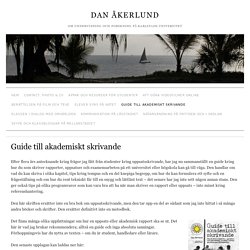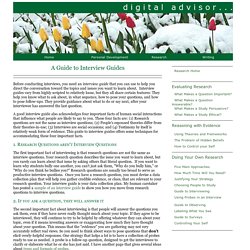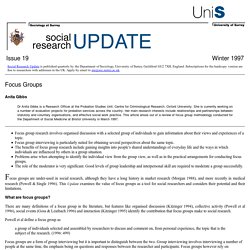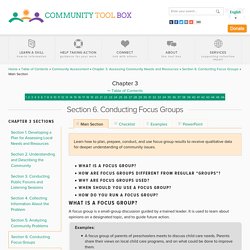

ResearchProposal_Exercise-rq4rr2. Guide till akademiskt skrivande » Dan Åkerlund. Efter flera års antecknande kring frågor jag fått från studenter kring uppsatsskrivande, har jag nu sammanställt en guide kring hur du som skriver rapporter, uppsatser och examensarbeten på ett universitet eller högskola kan gå till väga.

Den handlar om vad du kan skriva i olika kapitel, tips kring tempus och en del knepiga begrepp, om hur du kan formulera ett syfte och en frågeställning och om hur du rent tekniskt får till en snygg och lättläst text – det senare har jag inte sett någon annan stans. Den ger också tips på olika programvaror som kan vara bra att ha när man skriver en rapport eller uppsats – inte minst kring referenshantering. Den här skriften ersätter inte en bra bok om uppsatsskrivande, men den tar upp en del av sådant som jag inte hittat i så många andra böcker och skrifter.
Den ersätter definitivt inte en metodbok. Det finns många olika uppfattningar om hur en uppsats eller akademisk rapport ska se ut. Den senaste upplagan kan laddas ner här: /dan. Interview Guides. Before conducting interviews, you need an interview guide that you can use to help you direct the conversation toward the topics and issues you want to learn about.

Interview guides vary from highly scripted to relatively loose, but they all share certain features: They help you know what to ask about, in what sequence, how to pose your questions, and how to pose follow-ups. They provide guidance about what to do or say next, after your interviewee has answered the last question. A good interview guide also acknowledges four important facts of human social interactions that influence what people are likely to say to you. These four facts are: (1) Research questions are not the same as interview questions; (2) People's espoused theories differ from their theories-in-use; (3) Interviews are social occasions; and (4) Testimony by itself is relatively weak form of evidence.
This guide to interview guides offers some techniques for accommodating these four important facts. 1. 2. 3. 4. 5. Social Research Update 19: Focus Groups. Social Research Update is published quarterly by the Department of Sociology, University of Surrey, Guildford GU2 7XH, England.

Subscriptions for the hardcopy version are free to researchers with addresses in the UK. Apply by email to sru@soc.surrey.ac.uk. Focus Groups Anita Gibbs Dr Anita Gibbs is a Research Officer at the Probation Studies Unit, Centre for Criminological Research, Oxford University. Focus group research involves organised discussion with a selected group of individuals to gain information about their views and experiences of a topic.
Focus groups are under-used in social research, although they have a long history in market research (Morgan 1988), and more recently in medical research (Powell & Single 1996). Chapter 3. Assessing Community Needs and Resources. What is a focus group?

How are focus groups different from regular "groups"? Why are focus groups used? When should you use a focus group? How do you run a focus group? What is a focus group? A focus group is a small-group discussion guided by a trained leader. Examples:A focus group of parents of preschoolers meets to discuss child care needs. How are focus groups different from regular "groups"? A focus group is different in three basic ways: The main difference is the group has a specific, focused discussion topic. Because focus groups are structured and directed, but also expressive, they can yield a lot of information in a relatively short time. Why are focus groups used? Focus groups help people learn more about group or community opinions and needs. But needs assessment surveys typically have written, closed-ended, relatively narrow questions which are quantitatively scored.
Which is better? When should you use a focus group? A focus group is not for every social situation. Specifically: Teacher%20takeaway. Top 14 Free Qualitative Data Analysis Software.